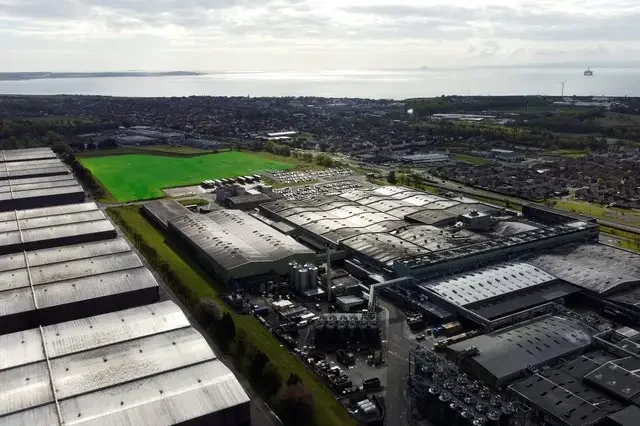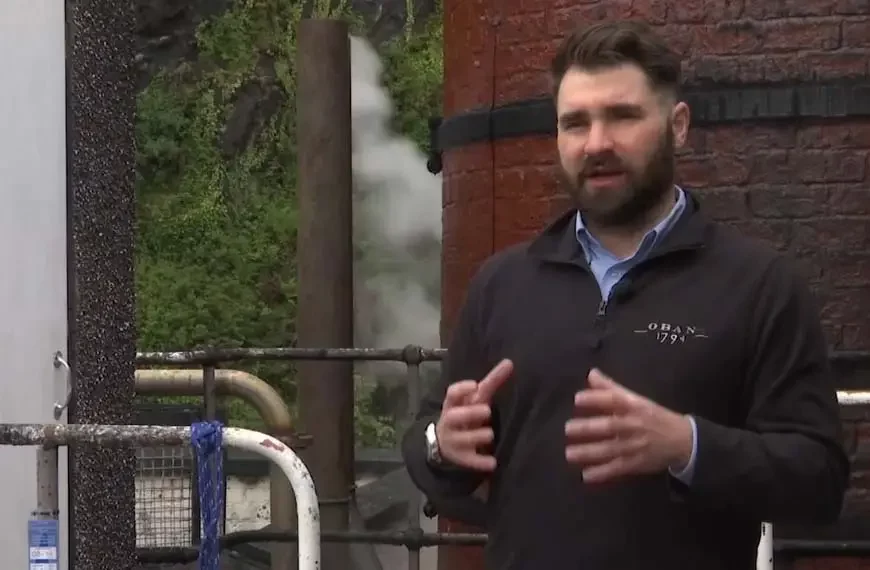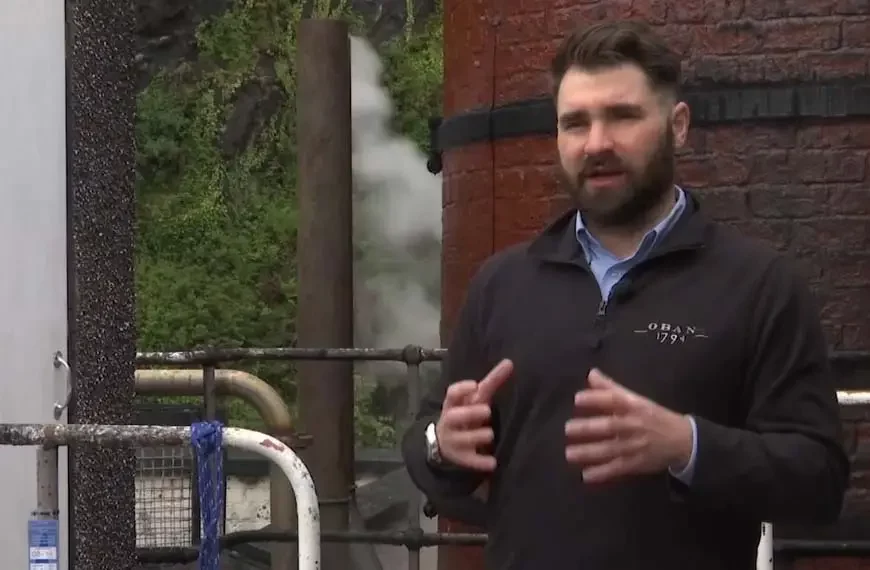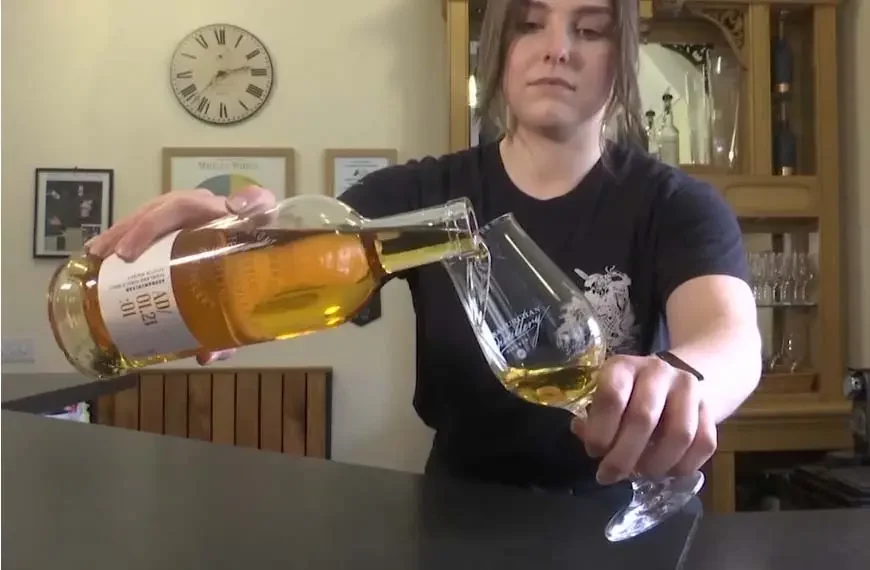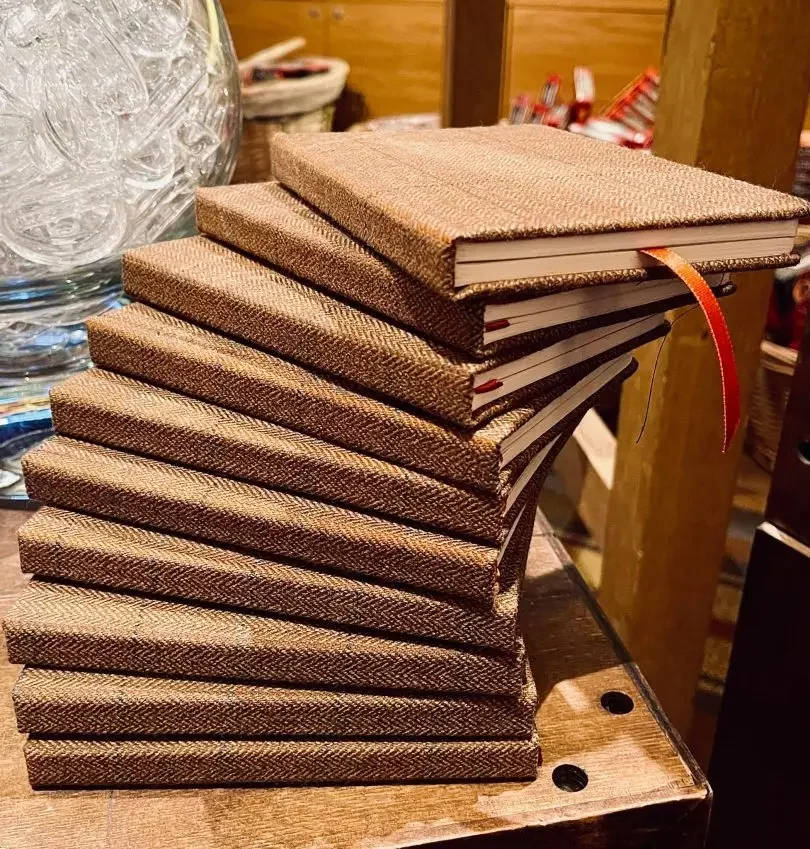Diageo aims to warm up net-zero credentials with Fife solar farm plans
Spirits giant Diageo – Scotland’s biggest whisky producer by volume – has applied for planning permission for a major on-site solar energy farm at its Leven packaging plant.
Should the plans get the green light, they would see 12,000 solar panels capable of producing four megawatts of electricity installed on vacant land at the 150-acre plant, which produces 40 million cases of premium spirits each year.
The owner of brands including Johnnie Walker and Guinness said the move is part of its plans to achieve net-zero carbon emissions from its direct operations by 2030 – and it is working with energy company E.ON and Emtec Energy, a local Scottish business, to develop the solar-panel farm.
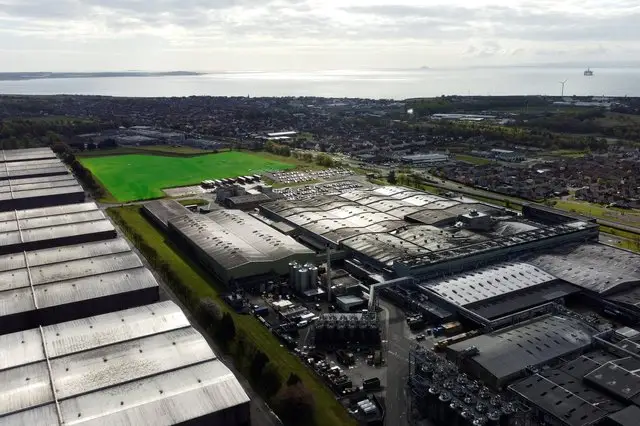
The latter would be entirely within the existing footprint of the Leven packaging plant site
“and is planned carefully to ensure minimal visual and environmental impact on the surrounding area.“
Does making whiskey harm the environment?
Gavin Brogan, operations director at the Leven packaging plant, said: “We have been on the journey to environmental sustainability at Leven for many years and we have made great progress, but this solar array would take us to another level, allowing us to generate our own renewable energy onsite and contributing to Diageo’s global ambition to achieve net-zero carbon emissions by 2030.
“We have planned this carefully and we are happy to engage our neighbours and local stakeholders during the planning application process.”
The firm added that in Scotland, three of its Scotch whisky distilleries – Oban, Royal Lochnagar and Brora – have already achieved net-zero carbon emissions. Diageo also recently confirmed that its Johnnie Walker Princes Street attraction in Edinburgh will open on September 6.


